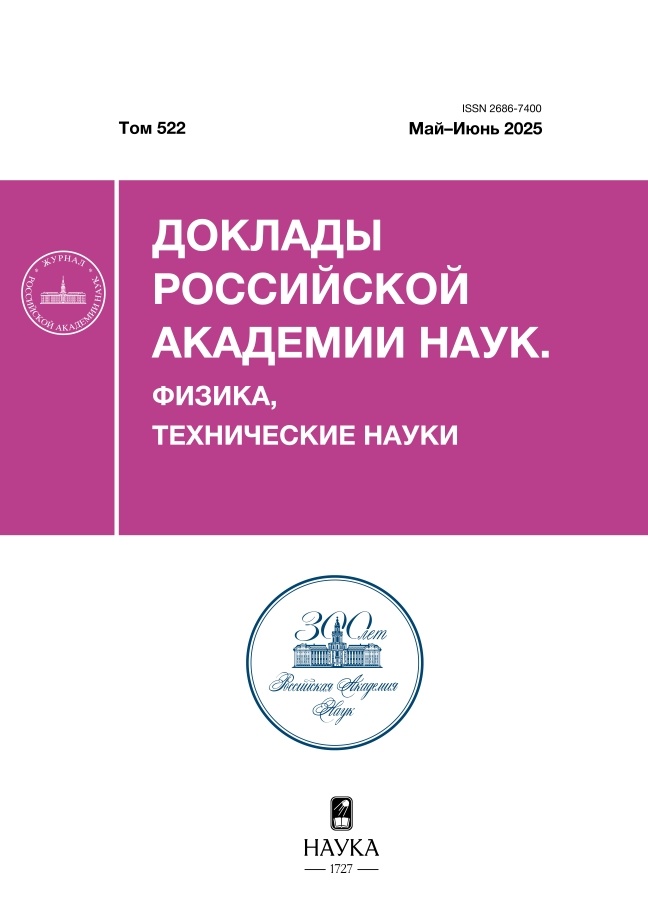Mathematical Criterion for the Formation of Cryopags during the Freezing of Rocks Saturated with Salt Solution
- Authors: Ramazanov M.M.1,2, Bulgakova N.S.1,3, Lobkovsky L.I.4
-
Affiliations:
- Institute for Geothermal Research and Renewable Energy – a Branch of Joint Institute for High Temperatures of the Russian Academy of Sciences
- Sadovsky Institute of Geosphere Dynamics, Russian Academy of Sciences
- Dagestan State Institute of National Economy
- Shirshov Institute of Oceanology of the Russian Academy of Sciences
- Issue: Vol 515, No 1 (2024)
- Pages: 59-66
- Section: МЕХАНИКА
- URL: https://medjrf.com/2686-7400/article/view/651800
- DOI: https://doi.org/10.31857/S2686740024020094
- EDN: https://elibrary.ru/KHEIDT
- ID: 651800
Cite item
Abstract
Based on a mathematical model that takes into account the osmosis effect, a criterion for the formation of cryopegs in freezing rocks saturated with a salt solution is obtained. It is shown that this criterion significantly depends on the osmosis coefficient. The properties of the cryopeg are investigated depending on the parameters of the problem.
Keywords
About the authors
M. M. Ramazanov
Institute for Geothermal Research and Renewable Energy – a Branch of Joint Institute for High Temperatures of the Russian Academy of Sciences; Sadovsky Institute of Geosphere Dynamics, Russian Academy of Sciences
Author for correspondence.
Email: mukamay-ipg@mail.ru
Russian Federation, Makhachkala; Moscow
N. S. Bulgakova
Institute for Geothermal Research and Renewable Energy – a Branch of Joint Institute for High Temperatures of the Russian Academy of Sciences; Dagestan State Institute of National Economy
Email: ipgnatali@mail.ru
Russian Federation, Makhachkala; Makhachkala
L. I. Lobkovsky
Shirshov Institute of Oceanology of the Russian Academy of Sciences
Email: llobkovsky@ocean.ru
Academician of the RAS
Russian Federation, MoscowReferences
- Дубиков Г.И., Иванова Н.В. Засоленные мерзлые грунты и их распространение на территории СССР / В кн.: Засоленные мерзлые грунты как основания сооружений. М.: Наука, 1990. С. 3–9.
- Стрелецкая И.Д., Лейбман М.О. Криогеохимическая взаимосвязь пластовых льдов, криопэгов и вмещающих их отложнений центрального Ямала // Криосфера Земли. Новосибирск: ГЕО. 2002. Т. VI. № 3. С.15–24.
- Shakhova N., Semiletov I., Dudarev O., Mazurov A.K., Charkin A., Salyuk A., Kosmach D., Karnaukh V., Chernykh D., Gustafsson O., Sergienko V., Lobkovsky L., Ananiev R., Dmitrevsky N., Meluzov A., Tumskoy V., Koshurnikov A., Gunar A., Grigoriev M. Current rates and mechanisms of subsea permafrost degradation in the East Siberian Arctic Shelf // Nature Communications. 2017. V. 8. P. 15872. https://doi.org/10.1038/ncomms15872
- Лобковский Л.И., Рамазанов М.М. Фронтовой режим тепломасспереноса в газогидратном пласте в условиях отрицательных температур // Известия РАН. Механика жидкости и газа. 2018. № 4. С. 75–89. https://doi.org/10.31857/S056852810000562-9
- Chuvilin E., Ekimova V., Bukhanov B., Grebenkin S.; Shakhova N.; Semiletov I. Role of Salt Migration in Destabilization of Intra Permafrost Hydrates in the Arctic Shelf: Experimental Modeling // Geosciences. 2019. V. 9 (4). P. 188:1–188:18. https://doi.org/10.3390/geosciences9040188
- Якушев В.С. Природный газ и газовые гидраты в криолитозоне. М.: ВНИИГАЗ, 2009. 190 с.
- Цыпкин Г.Г. Течения с фазовыми переходами в пористых средах. М.: Физматлит, 2009. 232 c.
- Васильев В.И., Максимов А.М., Петров Е.Е., Цыпкин Г.Г. Тепломассоперенос в промерзающих и протаивающих грунтах. М.: Наука, Физматлит, 1996. 224 с.
- Максимов А.М., Цыпкин Г.Г. Явление перегрева и образование двухфазной зоны при фазовых переходах в мерзлых грунтах // ДАН СССР. 1987. Т. 294. № 5. С. 1117–1121.
- Рамазанов М.М., Каракин А.В., Лобковский Л.И. Математическая модель движения растворов с учетом осмотического эффекта // ДАН. 2019. Т. 489. № 1. С. 75–79. https://doi.org/10.31857/S0869-5652489175-79
- Рамазанов М.М., Булгакова Н.С., Лобковский Л.И. Осмотическая конвекция // ДАН. Физтка, технические науки. 2022. Т. 504. № 1. С. 47–52. https://doi.org/10.31857/S2686740022020109
- Chuvilin E.M., Ershov E.D., Naletova N.S. Mass transfer and structure formation in freezing saline soils // PERMAFROST – Proc. Seventh International Conference. Yellowknife (Canada), Collection Nordicana No 55. 1998. P. 173–179.
- Chuvilin E.M. Migration of ions of chemical elements in freezing and frozen soils // Polar Record. 1999. V. 35 (192). P. 59–66. Printed in the UK. https://doi.org/10.1017/S0032247400026346
Supplementary files











